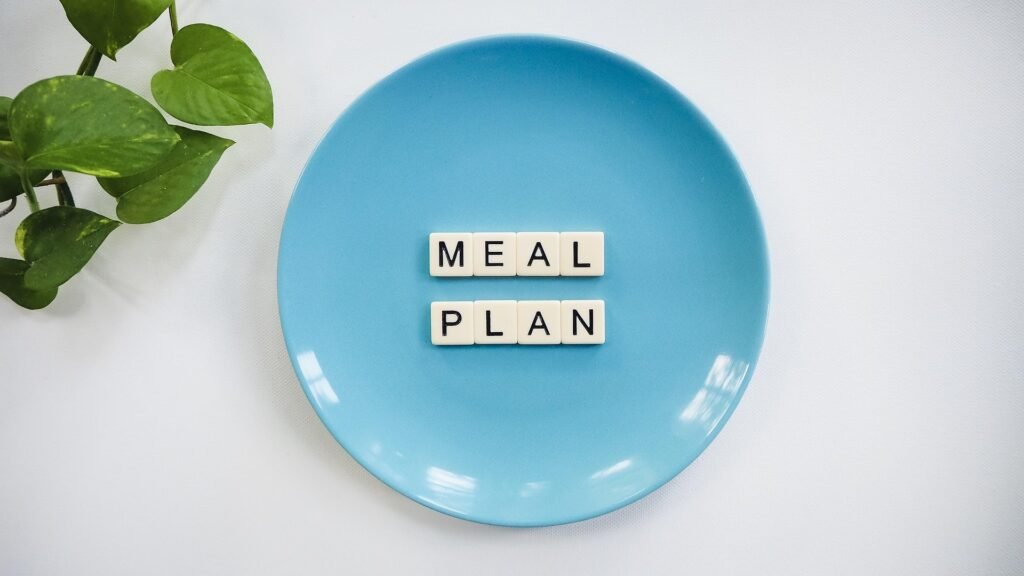Picture this: Every single day, the world throws away over 1 billion meals worth of food. That’s approximately one fifth of the food produced globally for human consumption.
And guess what? Households are leading in this, accounting for nearly 60 percent of this waste, which equals 631 million tons annually.
But here’s the painful irony: At the same time, somewhere within the same planet, 783 million people struggle with hunger.
But it’s not just about throwing away food while others go without. Food waste alone contributes around 8 to 10 percent of global greenhouse gas emissions, a staggering burden that we could easily lighten with better habits.
Many people believe that living sustainably costs more, reserved only for those who can afford fancy eco-products. But the truth is very different. While some eco-friendly items carry higher price tags, the most powerful sustainable choices often save money. They cut waste, reduce bills, and help you live more intentionally.
Living sustainably on a tight budget is not only possible, it can become your advantage. By rethinking habits, embracing affordable swaps, and making small changes in how you use energy, food, and transport, you can live lighter on the planet without straining your finances.
And get this: Sustainable living on a tight budget isn’t about deprivation. It’s about learning how to stretch what you already have, to make choices that save both the planet and your pocket. It’s about being clever, creative, and intentional.
Everyday Habits That Save Money and the Planet
Living sustainably doesn’t always start with big life changes. It starts with small, consistent habits, the kind that quietly save resources and money day after day. You don’t need to overhaul your life overnight. All it takes is to start noticing the simple, everyday choices that add up over time.
Use Water Wisely
Water is one of the easiest resources to waste and one of the hardest to live without. A single tap dripping a drop of water every second can lose 11,000 liters a year. That’s enough to provide drinking water for eight people for an entire year.
Start with what’s simple. Fix leaks as soon as you spot them. Turn off the tap while brushing your teeth or soaping your hands. Keep showers short and mindful. Even trimming a few minutes can save tens of liters every time.
If you live somewhere that experiences heavy rain, consider collecting rainwater for cleaning, watering plants, or washing your car. In some regions, even reusing grey water from washing fruits or rinsing clothes can make a difference. These small tweaks might feel insignificant at first, but they build habits of awareness and responsibility.
Cut Energy Use with Lighting
Electricity prices are rising worldwide, but so is the opportunity to save. Lighting accounts for about 15 percent of a typical home’s energy use.
And guess what? Replacing old bulbs with LEDs can cut that energy use by up to 90 percent. Even more, the energy efficient bulbs last longer, which means fewer replacements and less waste.
Whenever possible, let natural light do the work for you. Open curtains during the day, rearrange furniture so you can work near windows, and switch off unnecessary lights when you leave a room. If your home allows it, using solar-powered lamps or garden lights can further reduce costs over time.
You don’t need to live off-grid to save energy. It only takes noticing where energy slips away and plugging the leaks, and we already provided some signs that your kitchen is wasting energy. You can look out for the same in almost every other area in your home.
Plan Meals and Reduce Food Waste
Food waste might be one of the world’s most expensive bad habits. The average person wastes about 79 kilograms of food every year, most of which could have been eaten. That’s not just wasted food but also wasted money, energy, water, and labor too.
Meal planning is one of the easiest and most effective ways to change that. Before shopping, plan your meals for the week. Buy only what you need, and use what you already have before it spoils.

Also, store food properly using airtight containers, ensure fridge organization, and have clear labeling. These simple habits can make a world of difference.
Cooking in batches or freezing leftovers saves time and prevents spoilage. If something’s starting to wilt or brown, get creative: overripe bananas make great smoothies, and vegetable scraps can become flavorful broth. Small acts of resourcefulness not only reduce waste but also remind you how much value each ingredient holds.
Avoid Unnecessary Purchases
Sometimes, the most sustainable action is the one you don’t take, like deciding not to buy something. Before every purchase, pause for a few seconds and ask yourself: “Do I need this, or do I just want it right now?”
This tiny moment of reflection helps break impulsive spending. It’s about learning to live with intention instead of consumption. Can you borrow it from a friend? Can you buy it second-hand? Can you fix what you already have instead of replacing it?
Over time, this habit rewires your relationship with stuff. You start to feel lighter, freer, and more in control. And that’s when you realize something powerful: saving the planet and saving money often come from the same decision — learning to say no.
Affordable Swaps That Last Longer
Living sustainably on a tight budget often comes down to smart substitutions. You do not have to buy expensive eco-products or fancy gadgets to make a difference. Many small swaps, once made, continue saving you money month after month.
Reusables Over Disposables
Think of how many single-use items pass through your home every week. Plastic bottles, disposable coffee cups, paper towels, cling film. They all seem cheap at the moment you buy them, but over time they quietly drain your wallet.
Switching to reusables saves you both money and waste. A single stainless steel water bottle can replace hundreds of plastic ones each year. A cloth shopping bag can serve you for years instead of hundreds of paper or plastic bags. Even a set of washable cloth napkins can save you from constantly buying rolls of kitchen paper.
The beauty of reusables is that they multiply their value over time. The longer you use them, the more you save. They also make your space feel calmer and less cluttered, since you are no longer surrounded by piles of throwaway items waiting for the bin.
DIY Cleaning Products
Walk down any supermarket aisle and you will see shelves filled with cleaning products, each promising miracles. But most of what you need to clean your home is already in your kitchen. Vinegar, baking soda, lemon juice, and soap can handle almost any job at a fraction of the cost.
A splash of vinegar mixed with water cleans glass and countertops beautifully. Baking soda works wonders on stains and bad odors. Lemon juice cuts grease and leaves a fresh scent behind. By making your own cleaning products, you avoid harmful chemicals and reduce plastic packaging at the same time.
You also gain something that no store-bought cleaner can offer; control. You know exactly what goes into your home and onto your surfaces. It is safer for you, your pets, and the planet.
Thrift, Repair, and Reuse
We live in a world that encourages replacement over repair. Clothes tear, appliances break, and the first instinct is to buy new. But thrift and repair culture is coming back, and it is one of the most practical, sustainable trends you can embrace.
Thrift stores, vintage markets, and online swap groups are filled with treasures that cost a fraction of retail prices. Many of these items are better made than what you find in fast fashion stores today. When something breaks, look for a way to fix it before throwing it away. A small repair kit or a local tailor can breathe new life into a favorite item.
Every time you repair or repurpose something, you extend its life and reduce your environmental footprint. You also gain pride and creativity, knowing you gave something another chapter instead of adding to the landfill.

Budget-Friendly Home Changes
Not every sustainable upgrade needs to involve major renovation or expensive appliances. Sometimes, it is the quiet, inexpensive tweaks that make the biggest difference.
Small Fixes with Big Results
A well-sealed home saves more energy than most people realize. Closing small gaps around doors and windows helps regulate indoor temperature, cutting both heating and cooling costs.
Heavy curtains and rugs also help insulate a space, keeping it warm in winter and cool in summer. These fixes are simple, affordable, and effective year-round.
Choose Energy-Efficient Fixtures
If you ever replace appliances or lighting, look for energy-efficient options. They may cost a bit more at first but quickly repay that investment through lower utility bills.
Motion-sensor lights, smart plugs, and timers can help reduce electricity use without requiring daily effort. Even adjusting your fridge or freezer temperature slightly can save energy without affecting performance.
Add Water-Saving Devices
Water efficiency often comes from small, affordable upgrades. Low-flow showerheads, faucet aerators, and dual-flush toilets are easy to install and can cut water use dramatically. Since heating water also uses energy, these devices reduce more than just your water bill. Over time, the savings add up while your impact shrinks.
Rethinking Transportation on a Budget
Transport can quietly eat up a huge portion of your income. Fuel, insurance, maintenance, and parking fees all add up. But with a few changes, you can move through the world more sustainably without spending more — in fact, you might spend less.
Walk, Bike, or Use Public Transport
Walking and biking are more than just eco-friendly choices. They are good for your health, your wallet, and your peace of mind. Even swapping one short car trip per day for walking or cycling can save hundreds of dollars each year in fuel costs.
In cities with public transport, using buses, trams, or trains often costs a fraction of what car ownership does. You skip the expenses of maintenance and parking while cutting your carbon footprint dramatically.
In 2024, the International Energy Agency reported that transportation accounts for about more than a third of global CO2 emissions from end-use sectors, so every shared ride or bus trip truly counts.
Share Rides and Carpool
If owning a car is unavoidable, sharing rides can help reduce costs and emissions at the same time. Carpooling to work, school, or events divides fuel expenses and makes travel more social. Some communities and apps now organize shared commutes, making it easier than ever to connect with others headed in the same direction.
When several people share one trip instead of driving separately, the fuel savings multiply, and fewer vehicles mean less congestion and pollution in cities. It is a simple act with far-reaching benefits.
Maintain Vehicles Properly
If you do drive, taking care of your vehicle pays off. Keeping tires properly inflated, removing unnecessary weight, and driving smoothly all improve fuel efficiency. Regular servicing prevents costly breakdowns and keeps engines running clean.
Even small habits, like turning off the engine while waiting or combining errands into one trip, reduce emissions and save fuel. A well-maintained car lasts longer, pollutes less, and costs less to run. That’s a triple win for your wallet and the planet.
Mindset Shifts for Sustainable Living
Living sustainably on a budget is not just about what you buy or how you travel. It is about changing how you think about consumption, comfort, and what truly adds value to your life. When your mindset shifts, your habits follow naturally and without constant struggle.
Think in Terms of Value, Not Price
Buying the cheapest option often leads to repeated purchases. A poorly made item may break quickly, forcing you to spend again. Looking at value rather than price changes your approach. A slightly higher investment in a durable product usually saves money over its lifetime.

Embrace Sharing and Community
Sustainability thrives in community. Across the world, tool libraries, clothing swaps, and neighborhood sharing networks are growing. Instead of everyone buying the same item that sits unused most of the time, communities share resources. This reduces costs for individuals and builds bonds between people.
Start Small and Celebrate Wins
Living sustainably does not require overnight transformation. Choose one habit at a time. Maybe reduce food waste this month, then cut plastic use next month. Each small change builds momentum. Celebrating wins reinforces your progress and helps you stay motivated. Over time, those small shifts grow into lasting lifestyle changes.
Conclusion
Living sustainably on a tight budget is not about sacrifice. It is about finding value in what you already have and making choices that stretch your resources further.
If everyone saved just a little, such as one less wasted meal, one shorter shower, or one reused item, the global impact would be enormous.
Perfection is not the goal. Progress is. Start with one change, stay consistent, and let it grow. Over time, your choices will save money, cut waste, and make a real difference.
Because sustainable living is not for the wealthy few. It is for all of us, and it begins with small, intentional steps.




Добавил в закладки, очень нравится
ваш проект.